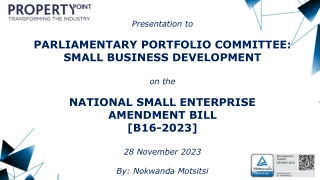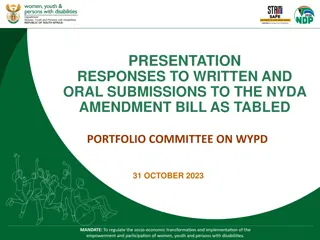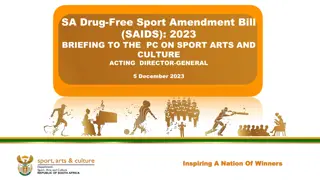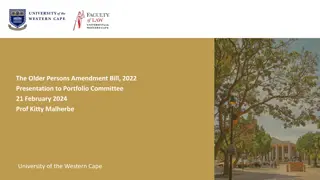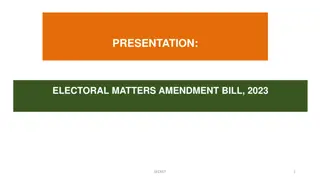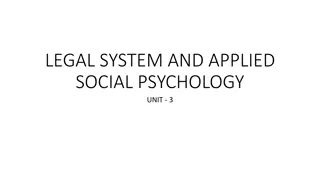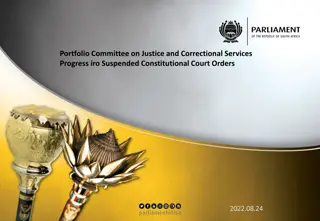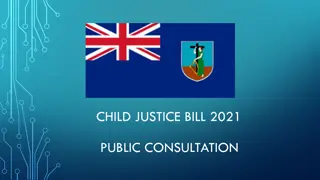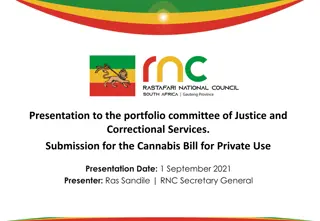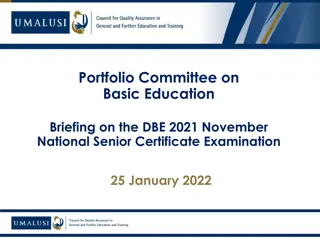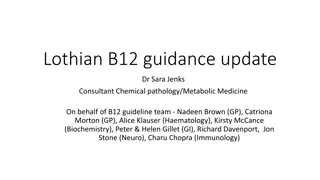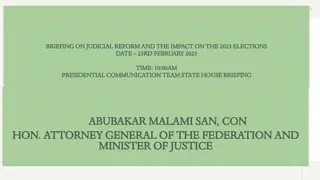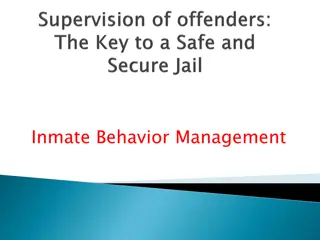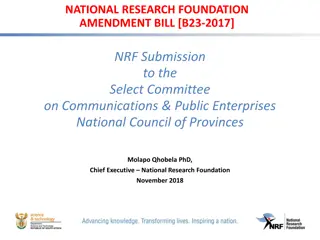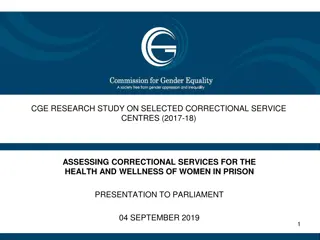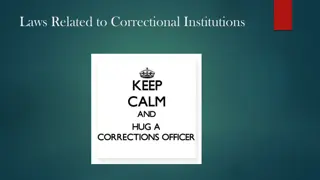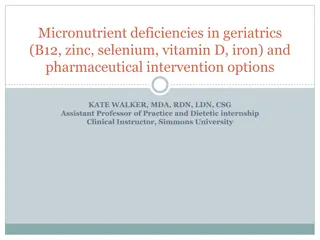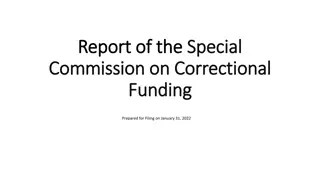Briefing on the Criminal Procedure Amendment Bill [B12-2021] to the Portfolio Committee on Justice and Correctional Services
The Criminal Procedure Amendment Bill aims to address the constitutional invalidity of section 154(3) of the Criminal Procedure Act by enhancing protection for child victims, accused, and witnesses in criminal proceedings. The Bill proposes prohibiting the publication of information revealing their identities unless authorized by a court, emphasizing equality, privacy, and the best interests of the child. Deadline for correction is December 4, 2021.
Download Presentation

Please find below an Image/Link to download the presentation.
The content on the website is provided AS IS for your information and personal use only. It may not be sold, licensed, or shared on other websites without obtaining consent from the author.If you encounter any issues during the download, it is possible that the publisher has removed the file from their server.
You are allowed to download the files provided on this website for personal or commercial use, subject to the condition that they are used lawfully. All files are the property of their respective owners.
The content on the website is provided AS IS for your information and personal use only. It may not be sold, licensed, or shared on other websites without obtaining consent from the author.
E N D
Presentation Transcript
BRIEFING ON THE CRIMINAL PROCEDURE AMENDMENT BILL [B12-2021] TO THE PORTFOLIO COMMITTEE ON JUSTICE AND CORRECTIONAL SERVICES 28 MAY 2021 1
BACKGROUND The Criminal Procedure Amendment Bill( the Bill ) aims to amend section 154 of the Criminal Procedure Act, 1977(Act 51 of 1977)( the Act ) in order to give effect to a judgment of the Constitutional Court in Centre for Child Law and Others v Media 24 Limited and Others( Centre for Child Law judgment ) 2019 ZACC 46. The Constitutional Court( the Court ) confirmed the decision of the Supreme Court of Appeal and declared section 154(3) of the Act constitutionally invalid for failing to protect the identity of child victims of crime in criminal proceedings and for failing to provide ongoing protection of anonymity to child accused, witnesses and victims. 2
BACKGROUND (CONTINUED) The declaration of constitutional invalidity was suspended for 24 months to afford Parliament an opportunity to remedy the defect giving rise to the constitutional invalidity. Parliament has until 4 December 2021 to correct the impugned section. 3
INTRODUCTION Currently, section 154(3) of the Act affords anonymity protection for child accused or witnesses in criminal proceedings. This protection prevents the publication of any information that discloses the identity of child accused and witnesses. This protection may only be withheld on the authority of a court, if it finds doing so equitable and just. Child victims are not covered by this protection. The provision does not extend the protection into adulthood for child accused, witnesses and victims. 4
INTRODUCTION(contd) In the Centre for Child Law judgment, the Court found section 154(3) to be unconstitutional for arbitrarily differentiating between classes of children and thus giving rise to a breach of the right to equality. The court stated that by excluding child victims from its protection, the section limits the right to equality, privacy and dignity and the principle of the best interests of the child. 5
CONTENTS OF BILL(Clause 1) Clause 1(a) of the Bill amends section 154(3) of the Act in order to prohibit the publication of any information which reveals or may reveal the identity of an accused or a witness or of a person against whom an offence has allegedly been committed, who is or was under the age of 18 years at the time of the alleged commission of the offence, unless the publication of such information is authorised by a court under subsection (3B). Subsection (3B) provides for the judicial officer or the presiding judge to authorise the publication of any information relating to the proceedings as he or she may deem fit, if such publication would, in his or her opinion, be just and equitable and in the interest of any particular person. 6
CONTENTS OF BILL(Clause 1) Clause 1(b) departs from the general rule on anonymity and permits a police official or any other person authorised by the National Commissioner of the SAPS to, in certain circumstances, publish information which may reveal the identity of an accused, a witness, a person, who is under the age of 18 years, against whom an offence has allegedly been committed or a person whose whereabouts needs to be located. Circumstances listed in subsection (3A) must be present in respect of every category of children in criminal proceedings before the information revealing the identity of a child may be published by the SAPS or an authorised person. 7
CONTENTS OF THE BILL (Clause 1) The Constitutional Court also held that an accused, witness, or person against whom an offence has allegedly been committed, who is under the age of 18 years at the time of the commission of the offence, does not forfeit the protection of anonymity afforded by section 154 upon attainment of the age of 18 years. The amendment to section 154 provides that the protection in subsection (3) is on-going unless the court authorises the publication of the information of a child. 8
CONTENTS OF BILL (Clause 1) A person may consent to the publication of their identity after reaching the age of 18 years, or if consent is refused their identity may be published at the discretion of a competent court. Consent is not the sole criteria for the publication of such information. Proposed subsection (3B) requires the court to be satisfied that the accused, witness or a person against whom an offence has been committed understands the nature and effect of the order authorising publication of their identity. 9
CONTENTS OF BILL Proposed new subsection (3B) also provides factors which must be considered by the court in determining whether the identity of such an accused, a witness, or a person against whom an offence has allegedly been committed, who is or was under the age of 18 years at the time of the commission of the offence, may be revealed. These factors include the nature of the charges, age of the person involved, interests of the public, the hardship a person may suffer as a result of the publication, etc 10
CONTENTS OF BILL(Clause 1) A court may, if it deems it necessary in the interests of justice, hold an enquiry to determine whether an order for the publication of information which may reveal the identity of a person should be granted. Such an enquiry must take place behind closed doors and the disclosure of information relating to such an enquiry is prohibited, unless the court permits such disclosure. The verdict of the enquiry must be delivered in an open court, subject to the limits set by the court. 11
CONTENTS OF BILL(Clause 2) Clause 2 of the Bill contains the short title and commencement of the Bill, which is on publication. THANK YOU 12
![Briefing on the Criminal Procedure Amendment Bill [B12-2021] to the Portfolio Committee on Justice and Correctional Services](https://cdn1.slideorbit.com/157093/briefing-on-the-criminal-procedure-amendment-bill-n.jpg)

